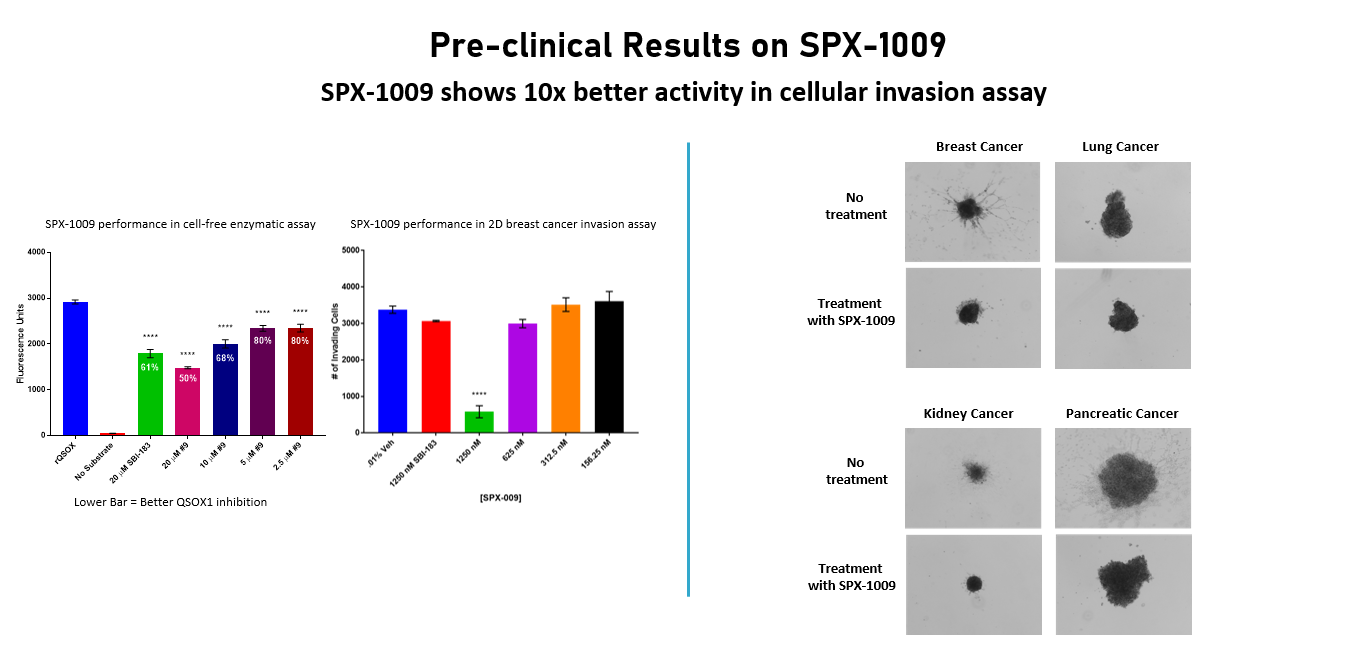THERAPEUTICS
key findings
QSOX1 enzyme is over-expressed in many tumor types and is associated with a poor prognosis[1-7]. Genetic knockdown of QSOX1 demonstrated that tumors were less invasive, leading us to screen for, and identify SBI-183, a chemical compound that inhibits QSOX1 (Fifield A. et al, 2020 DOI 10.1158/1535-7163.MCT-19-0233). Since SBI-183 is active in vivo and does not appear to be toxic in mice, even at 200 mg/kg, AXIM’s goal is to identify and characterize more potent analogs of SBI-183. A patent has been filed by Dr. Douglas Lake at Arizona State University (PCT/US2016/051519, W02017048712A1) on SBI-183 and was licensed by Sapphire Biotech, Inc.
Sapphire Biotech screened nearly 100 analogs of SBI-183 and identified SPX-1009 as a lead candidate that showed 10 fold improved activity in cell based assays. Currently, SPX-1009 is undergoing pharmacokinetic studies in animals. The results are expected to be available in the third quarter.
